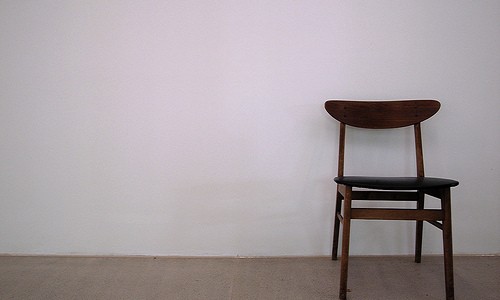Posts by Warren Pearce
Debating empty chairs: creationism, climate and public engagement
May 17, 2013
This week, Making Science Public has been very proud to welcome US film director Jeff Tamblyn during his UK visit. On Wednesday we screened his amazing film, Kansas vs Darwin, a documentary charting the attempts by members of the Kansas School Board to introduce creationism and intelligent design into high school science teaching. The film …
Families of climate scepticism I: faulty science?
April 12, 2013
At last week’s British Sociological Association conference, I presented some initial observations from my research on climate change scepticism. My starting point was that climate change scepticism – or as it is often inaccurately described, denial – is not monolithic. Those people typically labelled as sceptics vary in their arguments. Sometimes may employ many different arguments, some may focus on …
Event: FREE screening of Kansas vs Darwin + Q+A with director Jeff Tamblyn
April 11, 2013
In May we are very honoured to welcome US film director Jeff Tamblyn for screenings of his award-winning documentary, Kansas vs Darwin, followed by Q&A sessions with Jeff. The film tells an extraordinary story: This darkly comic documentary explores the epic 2005 Kansas state school board hearings, in which a group of creationist politicians attempted to …
Are they really climate deniers? Closing down debate in science and politics.
March 9, 2013
Just had an interesting back and forth with Vanessa Heggie about ‘what to call climate deniers/sceptics’? At the bottom of her excellent post on ‘how to debate with sceptics’, Vanessa wonders whether ‘denier‘ or ‘sceptic‘ is the right word to use around climate change. This was a handy reminder that, although I read stuff on …
Open access and MOOCs: follow the money
February 27, 2013
This is a guest blog written by John Holmwood, member of the Leverhulme Making Science Public programme, and founding member of the Campaign for the Public University In the extensive debate that has followed RCUK and Hefce announcements that ‘Gold’ open access under an ‘author pays’ system is to be mandated (with a short transition period) for the publication …
The opaqueness of seeing: expertise and guidance in clinical interventions
February 19, 2013
One of the benefits and, perhaps, risks of calling our research programme ‘Making Science Public’ is that it lends itself to a great many interpretations, something which came out very strongly from our launch event last week. One of these ‘ways of seeing’ Making Science Public is through studying the role of expertise in translating …
Call For Papers: Making Expertise Public panel at #SIP13 & #IPA2013
February 12, 2013
UPDATE: deadline extended to March 5th. We warmly invite papers to our Making Science Public panel Making Expertise Public: Dilemmas, Conflicts and Controversies, being held at the Interpretive Policy Analysis conference in Vienna (July 3rd-5th). The panel is co-chaired by Sujatha Raman (Deputy Director of Making Science Public), Warren Pearce and Judith Tsouvalis (Making Science Public Research Fellows). Abstracts are invited …
Ulrike Felt: Science as a ‘Public Good’ in Search of a ‘Good Public’
February 7, 2013
With only four days to go to the Making Science Public launch event next Monday, February 11th, we are providing a taster of our keynote speech from Professor Ulrike Felt, Professor and Head of the Department of Social Studies of Science at the University of Vienna. We have fewer than ten places left for the …
Making Science Public: a route to better evidence?
February 6, 2013
Co-authored post with Dr. Sujatha Raman, Deputy Director of Making Science Public. The role of scientific evidence within policy is one of the most vexed issues within politics and public administration. Often such evidence is complex, translated to the public via the media and subsequently used to justify particular policy actions or seen to be …
Weather 1, Climategate 0
January 25, 2013
A short post sparked by this new paper linking public ‘belief’ in climate change with the weather conditions at the time they were polled (£). From the abstract: Belief that humans are changing the climate is predicted by temperature anomalies on the interview and previous day, controlling for season, survey and individual characteristics. Or, as David …



